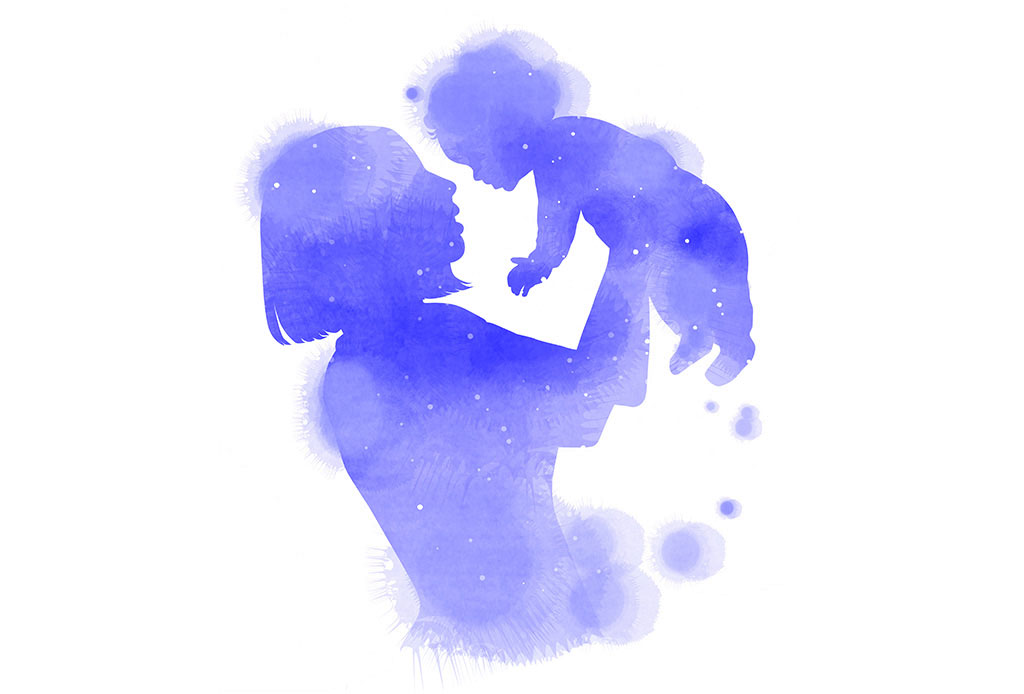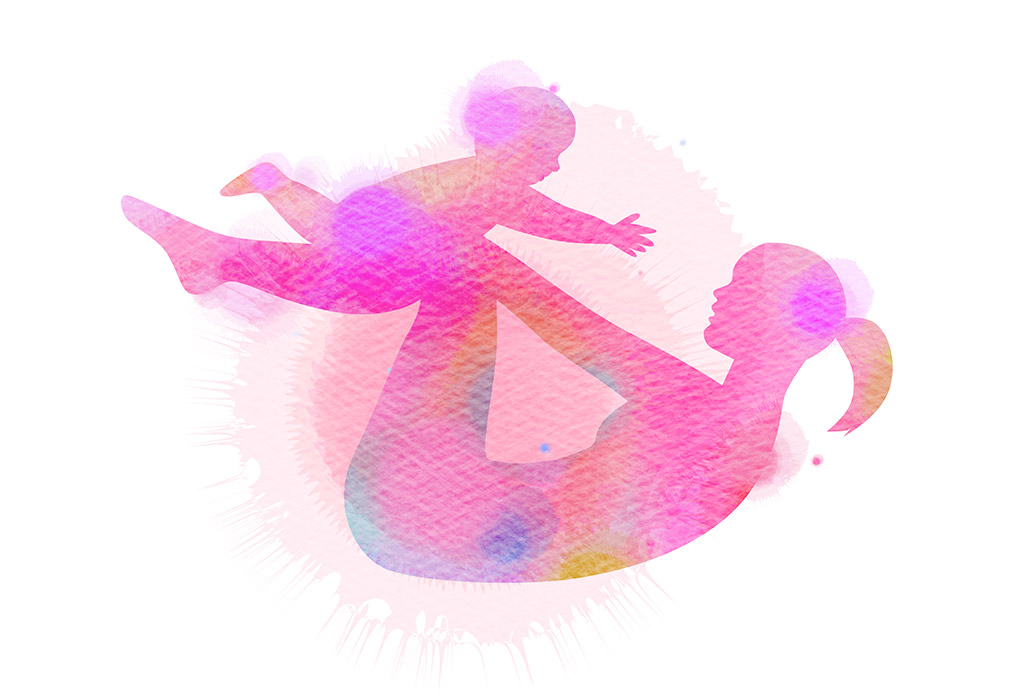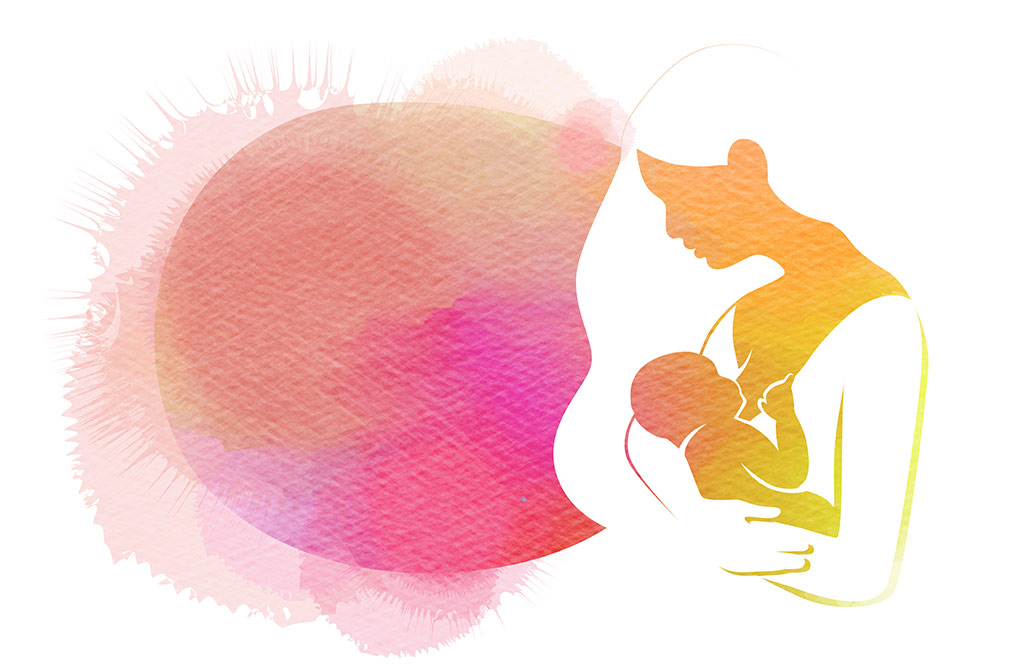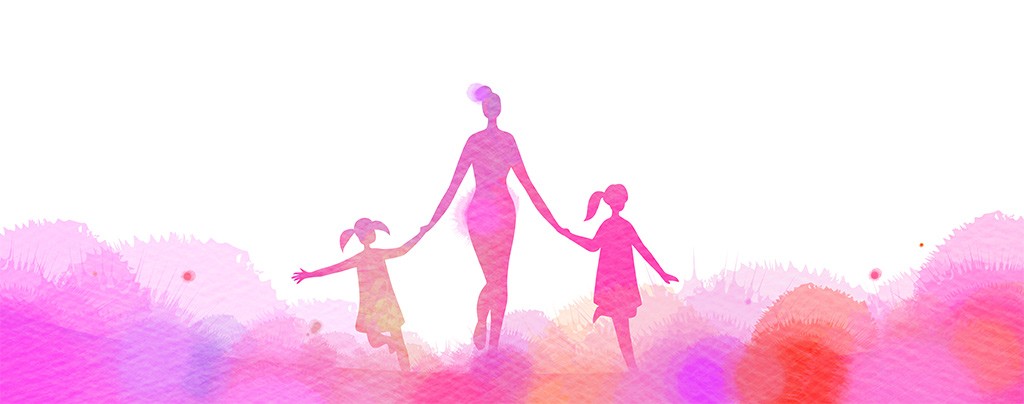That said, motherhood loneliness isn’t something that only occurs in new mothers. Moms who have older children and pregnant women can also struggle with feeling alone.
Ironically, Becoming A Mom Can Be Incredibly Lonely And Isolating

Motherhood loneliness is surprisingly common and it can strike at any time — during pregnancy, shortly after the birth, or even months later.
- A study revealed that 1 in 7 women experience postpartum depression during the year after giving birth.
- Spending a lot of time alone with a baby who can’t talk to you, as well as feeling overwhelmed by the difficult realities of motherhood can all contribute to feeling lonely.
- Moms, especially new ones, struggle with isolation for many reasons, including fear of taking a brand new baby out, exhaustion, discomfort from the birth, and a disconnect from friends, especially friends who don’t have kids.
- If you are feeling lonely during motherhood, the most important thing to do is communicate and share your emotions.
Struggling with loneliness or having a mental health crisis?
- Suicide Prevention Lifeline: 1-800-273-TALK (8255); Deaf or hard of hearing dial 711 before the number or connect via online chat
My husband returned to work a few days after the birth of our son.
As soon as the door closed behind him, I looked down at the helpless little bundle in my arms and thought, “Now what?”
Just one week before, I would have headed through that door with him to spend the day racing — or waddling — around New York, meeting colleagues, calling clients, and talking to friends.
On maternity leave, however, long days stretched out before me like a deserted road. My calendar was completely empty and the apartment was unnervingly quiet.
The thought of leaving the house with this tiny baby in tow — even if only to pick up a coffee or buy some groceries — seemed like a daunting task to face by myself.
The gorgeous infant I had waited for so long to meet was sleeping in my arms and it was fulfilling to finally become a mother, yet I felt very alone.
What Is Motherhood Loneliness And What Are The Realities Of Being A Lonely Mom?

On the surface, the notion of this particular type of loneliness seems a little counterintuitive because once you become a mother, you are never really alone ever again.
Even when I am not physically with my son, I am still thinking about him. Is he safe? Is he happy? Are his needs being met?
And it is this realization — that you have changed completely and irrevocably from your old self to begin a new life as someone’s mother — that can spark feelings of loneliness in moms.
Many women even experience loneliness during pregnancy due to their lifestyle changes as they prepare to make this monumental transformation.
According to a recent survey of 2,000 mothers, 90% of them feel lonely since having children.
Ninety percent!
This equates to nearly 600,000 cases of PPD a year, of which loneliness is a defining symptom.
Motherhood loneliness and isolation can occur for many reasons:
- There may be limited adult interaction, especially for stay-at-home moms
- Getting out of the house with a baby can be difficult due to exhaustion and slow recovery time after childbirth
- The adjustment to motherhood can be overwhelming
- Struggles with postpartum depression can worsen feelings of loneliness
- It’s difficult to maintain friendships with friends that don’t have children because they can’t relate
- Many moms won’t reach out for help because they don’t want to be labeled as a “bad mom” who can’t cope
- Moms often struggle with guilt over the way they’re raising their children, whether they work outside of the home or not
When I spoke to my mom friends about this topic, all of them agreed that it is something they have experienced themselves.
One friend in New York said, “It’s being with someone who wants and needs you all day but somehow you still feel isolated.”
When you’re a new mom, you don’t typically have the same amount of adult interaction you did before giving birth — and now your only constant companion is a little infant who can’t talk to you.
At the same time, you’re unable to pop out to meet friends for coffee because leaving the house with a baby in tow seems like a monumental feat when you’re sleep-deprived and stitched up.
But as I mentioned before, loneliness can strike parents at any time — it is not unique to new mothers.
Some moms have described feeling lonely as their kids begin to grow up and seek greater independence from their parents.
As Meredith Ethington explains in this article: “It’s a paradox for mothers. We crave alone time, but when we get it, we miss our kids.”
I think one of the main reasons that loneliness is such a shock for so many moms is the classic conundrum of expectation versus reality.
For months and months — and in some cases, years and years — you dream about becoming a mother.
You picture dressing your adorable baby in pristine little outfits — like those belonging to the dolls you played with as a child.
You imagine sun-filled days spent singing lullabies to your infant while birds chirp in harmony beyond your open window and freshly cut flowers adorn your immaculate apartment.
You think you’ll exist in some sort of Disney fairytale, but the reality is more Les Miserables.
There’s poop seeping through your baby’s outfit — which you’ve already changed three times today.
No one sleeps.
There’s no food in the fridge, and the laundry basket is full, and the fresh flowers are dead, and the baby is crying, and now you’re crying, and it’s suddenly a waking nightmare and you feel guilty over your performance as a mother.
I spoke to Caitlyn Collins, author of “Making Motherhood Work” and Assistant Professor of Sociology at Washington University in St. Louis, about why mothers struggle with loneliness.
She said:
“The U.S. has the most family-hostile public policy of any country in the Western industrialized world: without paid parental leave, public childcare centers, community spaces to facilitate learning, ample public parks, and so forth, of course women feel isolated.
U.S. society suggests that motherhood should be a blissful, endlessly fulfilling commitment for women. This is rarely the case for moms. It’s stressful, tiring, draining, overwhelming.”
She added, “Moms are told that child-rearing should come ‘naturally’ to them — that it should be as easy as breathing to know how to properly raise a child. If women struggle, they’re made to feel deficient.”
Somehow you believe that you’re the reason why your expectations of motherhood didn’t match up to reality.
The truth is that you’re just like every other new mom out there — but you’re unaware because no one openly talks about it!
You may be afraid to admit that you’re struggling because it would in some way infer that you are a bad mother and that you’re not cut out for this new role.
Even though some women make motherhood look “effortless” on the surface, we all struggle.
A mom friend of mine in New York shared that she was “too scared to admit that I wasn’t enjoying being a mom at first. I cried every day in the first few weeks. I didn’t think I could do it.”
On top of that stress, you may feel incredibly lucky to have a baby when you hear stories of miscarriage or infertility and it suddenly feels impossible to complain about having something that many women can only dream of.
So many moms feel like they have no one to turn to and as a result, they suffer in silence — alone.
Motherhood loneliness can affect pregnant moms-to-be, new moms, or even moms with older children.
How Motherhood Can Cause An Identity Crisis And Lead To Isolation

There is a word for becoming a mother: Matrescence.
And no one can fully understand or prepare themselves for just how much matrescence alters you after it happens.
In this excellent article, psychiatrist Daniel Stern was interviewed and said, “becoming a mother is an identity shift, and one of the most significant physical and psychological changes a woman will ever experience.”
He’s absolutely right about that.
You go from being your own person — someone with goals, relationships, and personal interests — and you suddenly discard everything you know about yourself to prioritize the needs and safety of your child.
This affects every single aspect of your life.
As a parent, your relationships change — with your partner, family, and friends.
Your career now seems insignificant. Your interests and hobbies are abandoned.
This can be a very lonely and isolating experience because if you don’t know who you are anymore, how is anyone else supposed to know?
I asked Caitlyn Collins, the assistant professor of sociology we spoke with earlier, about this identity crisis.
She said that the idea “women should drop everything else in their lives and sublimate their own needs to those of their kids is a weighty dictate — and one that’s bad for both mothers and kids in the short and long-term.”
After I had my son, I found myself thinking, “Who am I now, exactly? I am a mother…but is that all I will ever be?
Once I decided not to return to work in my office role as a journalist, my career — which had defined me for so long — was now obsolete.
Being a stay-at-home mom (SAHM) comes with its fair share of judgment and loneliness because people tend to think of it as the “cushy” option.
You get to stay home all day long, watching soap operas and eating ice cream, right?
There is this negative perception that if you’re a SAHM, you don’t have a job. But you do. You have a lot of jobs, actually — you just don’t get paid for any of them.
A friend of mine summed it up nicely:
“It’s basically juggling. Cleaning, cooking, laundry, dishes. All while keeping a child entertained and, well, alive. Going to work is hard, especially commuting and being in stressful, high-pressure situations.
But what I wouldn’t give to have half an hour to sit on a train and read my book! And I don’t think you’ve experienced stress until you’ve tried to get a screaming toddler out of a supermarket with a weeks’ worth of groceries in both arms.”
Don’t get me wrong, I love spending time with my son.
But staying at home with him means I can’t meet a work friend for lunch, chat with colleagues, or engage in any type of adult interaction during most days.
One SAHM posted this very honest Facebook post about the challenges of being at home with your kids all day.
It doesn’t paint a pretty picture — but it is the reality of the situation for stay-at-home moms.
Many new moms struggle with defining their identity after becoming a mother which can be very lonely.
Becoming a SAHM can also be an isolating experience as you spend so much time alone with a baby.
How New Motherhood Can Lead To Isolation

There are a couple of reasons why motherhood is particularly isolating for new moms.
- First, many women are not in a good physical state to get out and about following the trauma of childbirth.
According to a study by Dr. Julie Wray, a researcher at Salford University in England, it takes women a year to recover fully from childbirth.
However, the longer you remain in the “safe” quarters of your own home, the harder it is to take the plunge and get back out there later on.
After all, the outside world is a dangerous place — one that’s filled with far more hazards than your comfortable home.
Not to mention the fact that you are exhausted from being up all night with a baby that won’t sleep. You’re tired and cranky, the baby is fussy, and going out does not seem like an attractive prospect in the slightest.
Personally, I was so afraid of breastfeeding in public, lest I offend someone with my exposed breast (the horror!), that I often stayed at home where I could feed my son in peace.
- Second, it is difficult to make new friends or talk to existing ones when you have a baby with you.
Congratulations! You have taken all the precautions you can possibly take and you’ve actually left your apartment to go to a mom’s group.
You arrive and find yourself only half-listening to what people are saying because you’re so distracted by your baby and what they’re putting in their mouth or crawling towards; you still feel lonely.
What were we talking about again?
Furthermore, your relationships with your old and childless friends are in tatters because you just don’t have time to see them.
They can’t get together with you at 11 a.m. on a Wednesday because they all have jobs.
Besides, how can they possibly relate to your new situation? How can they understand the level of exhaustion and anxiety that now rules your life?
They can’t, so you hesitate to even call them at all, which only increases your feelings of isolation and loneliness.
What Can You Do To Help Combat Feelings Of Mom Loneliness?

I asked Caitlyn, the assistant professor of sociology, what she thinks can be done about the problem of motherhood loneliness. She said:
“Your loneliness is entirely understandable, normal, and common. It’s also not your fault. The U.S. can do infinitely more to support the life-giving work of childrearing.
Of course it’s overwhelming and stressful when we suggest it’s up to mothers alone to raise children well.
We need to ask more of men, of employers, and of lawmakers to pass the sorts of robust work-family policies that are already standard in every other western industrialized nation. You deserve better, and you don’t deserve to feel lonely.”
Although systemic change takes time, several things helped me cope with loneliness after I became a mom:
- Get out and about — leave the house at least once a day, even if it’s only for a walk
- Find like-minded people by joining Facebook groups and visiting local community spaces like libraries and parks
- Try downloading friend-finding apps like Peanut or Nextdoor
- Talk to your partner, your friends, and your family
- Ask for help — it doesn’t make you a bad mother
- Do something for yourself that doesn’t involve the baby
One of the most important pieces of advice I ever received after becoming a new mom was to leave the house at least once a day — every day — even if it is just to walk around the block or get a coffee.
The fresh air is a good mental health boost and you’ll feel like you’re participating in the world instead of being walled in your house like a sleep-deprived hermit.
According to a study in the Journal of Environmental Psychology, getting outside in fresh air is associated with increased energy levels.
And crucially, doing this means that you have to get dressed! It’s too easy to stay at home in the same pajamas you’ve been wearing for the past three days, which can be a sign of depression.
I joined Facebook groups and trawled the internet for activities and events that were happening in my community. Seek places where you might meet like-minded moms who are in the same boat as you.
When you find some, however, don’t compare yourself to the other moms you see. Just because they look like they have their shit together, doesn’t mean they know what they’re doing any more than you do.
Research shows that engaging in face-to-face interactions improves our mood and reduces depression at the same time, making social connections vital.
I downloaded an app called Peanut, which is basically Tinder for moms, and made some amazing friends with it.
From my experience, the most important thing you can do to combat that feeling of being alone as a mom is to communicate with others.
Talk to your partner if you have one. Tell them that you are feeling lonely and try to share some of the child-related workloads.
Catch up with your friends who don’t have kids. They will want to hear from you and they are probably avoiding calling because they don’t want to impose knowing you’ve got so much on your plate.
They also might worry about waking the baby up when your phone rings.
Try talking to other moms in the park and the playground and don’t be afraid to approach people to start a conversation.
Most importantly, ask for help if you need it — and even if you don’t. People generally like to be helpful and the act of assisting enables them to feel connected to you — and you, to them.
Finally, try to find time to do something for you that doesn’t involve the baby. Even if that only involves going for a quick walk in the park on your own to call a friend or relative.
Although your life has vastly changed to revolve around someone else’s, your self-care is no less vital than it was before you became a mom.
The more you bottle up your feelings of isolation, the worse they will become.
Getting out and about and meeting like-minded people is a good way to make and maintain social connections with others. And don’t be afraid to ask for help!
Closing Thoughts
Becoming a mother is one of the most transformative experiences a woman can have.
It’s a blessing and the most wonderful thing I have ever done.
That said, it’s not wonderful every minute of every day. There are entire days when it is anything but.
As a mom, I have felt lonely, isolated, confused, overwhelmed, bored and so very, very tired.
But that doesn’t make me a bad mother.
And admitting that you’re lonely and in need of help doesn’t make you a bad mother, either. In fact, it makes you a good mom because by helping yourself, you are helping your child.
Editor’s Note: This article is part of The Roots Of Loneliness Project, the first-of-its-kind resource that comprehensively explores the phenomenon of loneliness and over 100 types we might experience during our lives.
Find Help Now
If you’re struggling with loneliness as a new mom, we’ve put together resources to meet you wherever you are — whether you want someone to talk to right now, or are looking for longer-term ways to help ease your loneliness.
- Suicide Prevention Lifeline: 1-800-273-TALK (8255); Deaf or hard of hearing dial 711 before the number or connect via online chat
- Resources & Emotional Support For Loneliness
- Volunteer & Pet Adoption Opportunities






